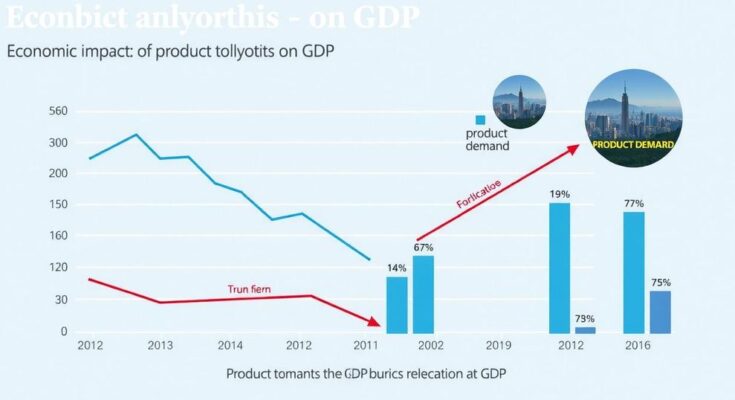Economists are raising alarms about the potential impact of foreign boycotts against U.S. products, ignited by tariff threats, which may significantly affect the nation’s GDP. According to a report by Goldman Sachs, declines in tourism along with reduced demand for U.S. goods could contribute notably to this economic shift.
The report identifies tourism as the main culprit, estimating that a 10% decrease in tourism might cause a 7 basis point decline in growth, while a more severe 20% drop could lead to an 18 basis point reduction. Also, a modest impact is expected from decreased demand across other categories including food and beverage, automobiles, and consumer goods, with each forecasted to contribute 2 or 3 basis points decline for a 10% reduction.
In Canada particularly, the repercussions are apparent; 53% of Canadian consumers report boycotting U.S. products. Provincial alcohol monopolies have reportedly removed U.S. products from sale, while Canadian grocery retailers enjoy a 10% boost in sales linked to this shift away from American goods. The Goldman Sachs report warns that recognizable American brands face significant spending reductions.
This analysis emerges right before President Trump announces new reciprocal tariffs aimed at balancing trade imbalances by matching tariffs that other countries impose on U.S. imports, in addition to existing tariffs on Canada, Mexico, and China.
Press Secretary Karoline Leavitt highlighted in her recent address that these new tariffs will create challenges for American products in foreign markets and have historically affected employment domestically. She stressed the necessity for change to support American interests.
Economists warn about potential GDP impacts from foreign boycotts against U.S. products due to tariff threats. A significant drop in tourism, projected to decrease GDP by 7 to 18 basis points, is the primary concern, alongside smaller effects from reduced demand in food, automotive, and consumer goods. In Canada, 53% of consumers are reportedly boycotting U.S. products. This analysis coincides with the upcoming announcement of new reciprocal tariffs by President Trump targeting international trade balances.
The foreseen consequences of foreign boycotts and decreased demand for U.S. exports highlight economic vulnerabilities facing the nation. With tourism being a large contributor to GDP changes, along with a consistent fall in other product categories due to tariff pressures, the impact is becoming increasingly apparent. The forthcoming reciprocal tariffs by President Trump will further complicate the landscape and could have lasting ramifications for various sectors.
Original Source: www.pymnts.com



